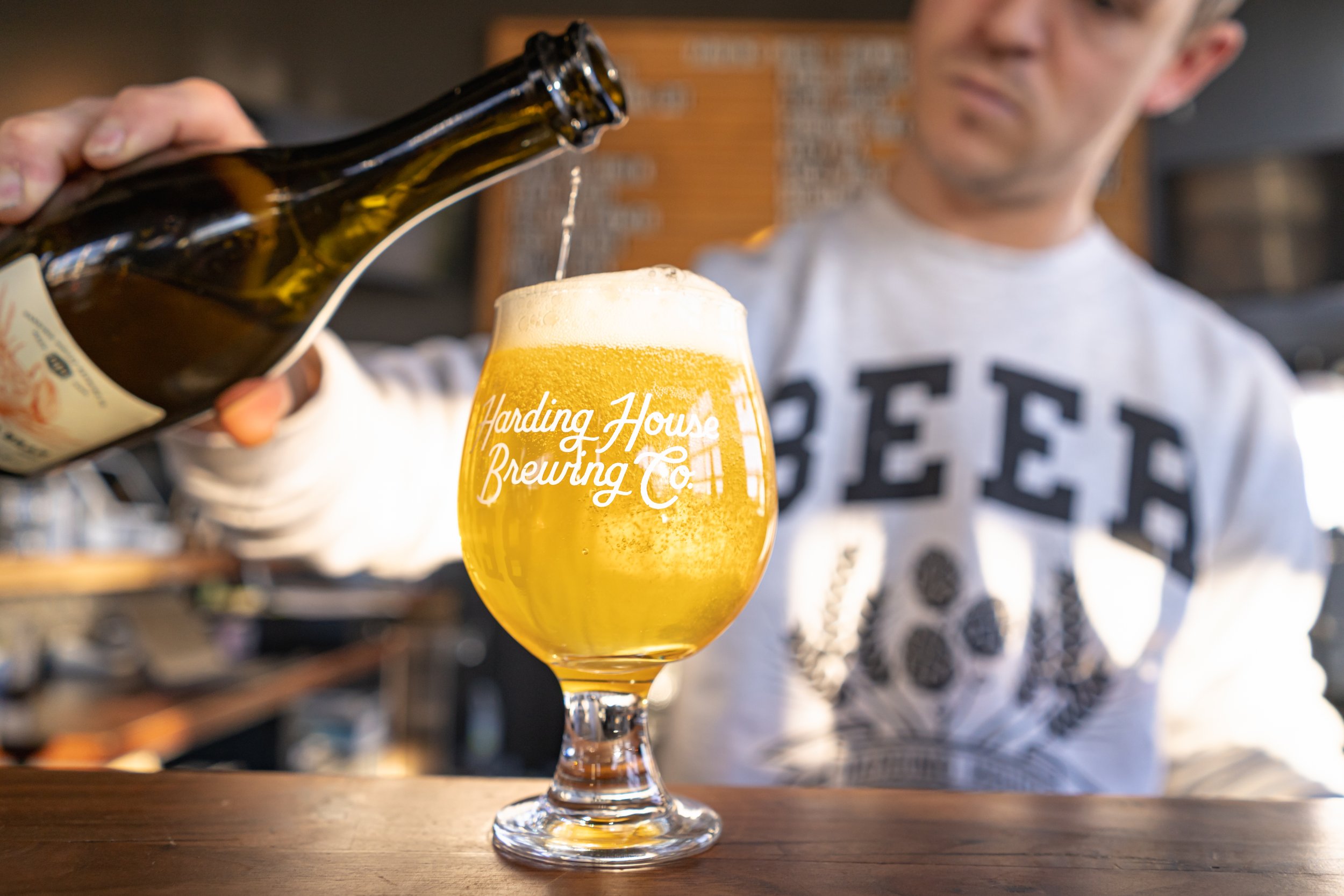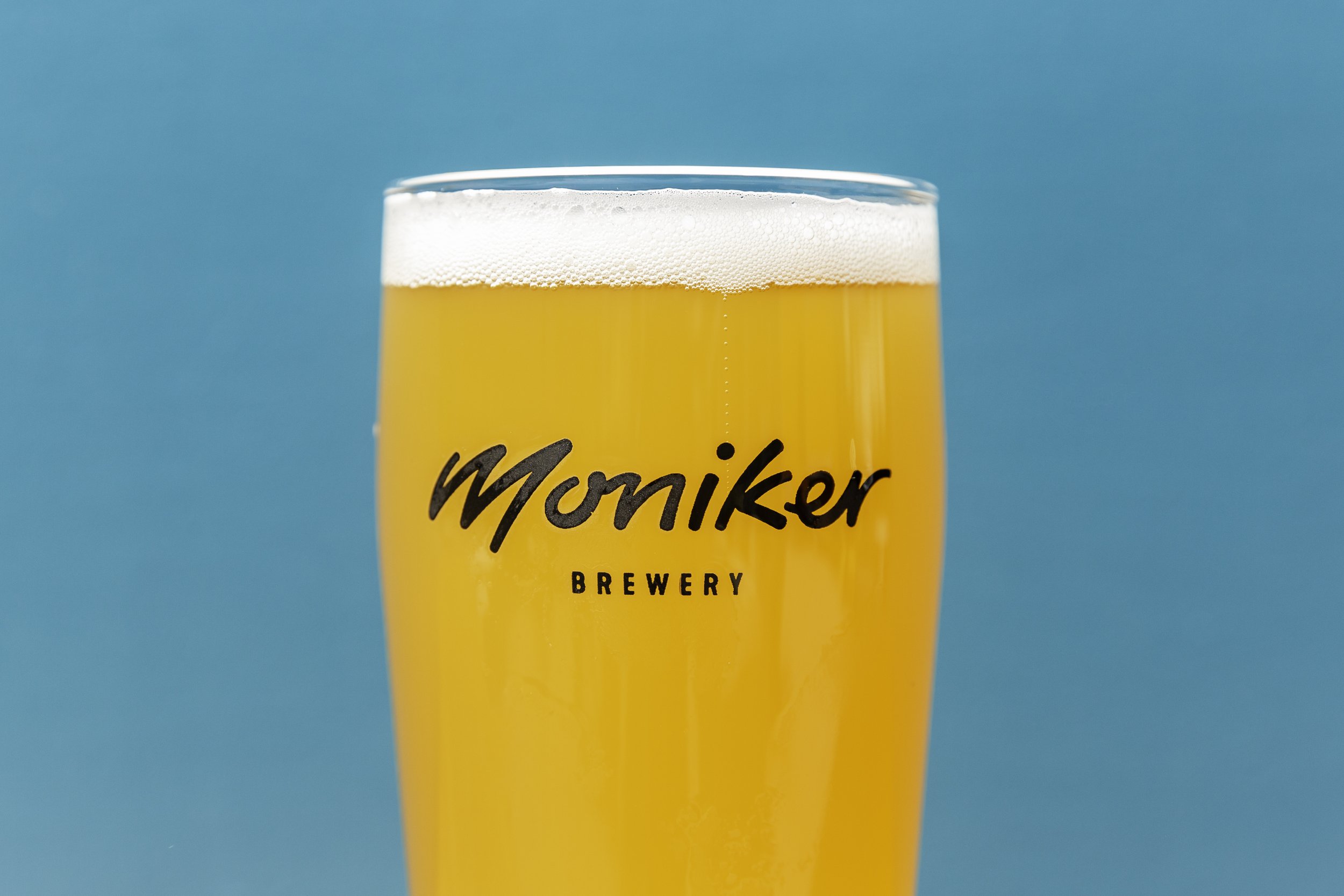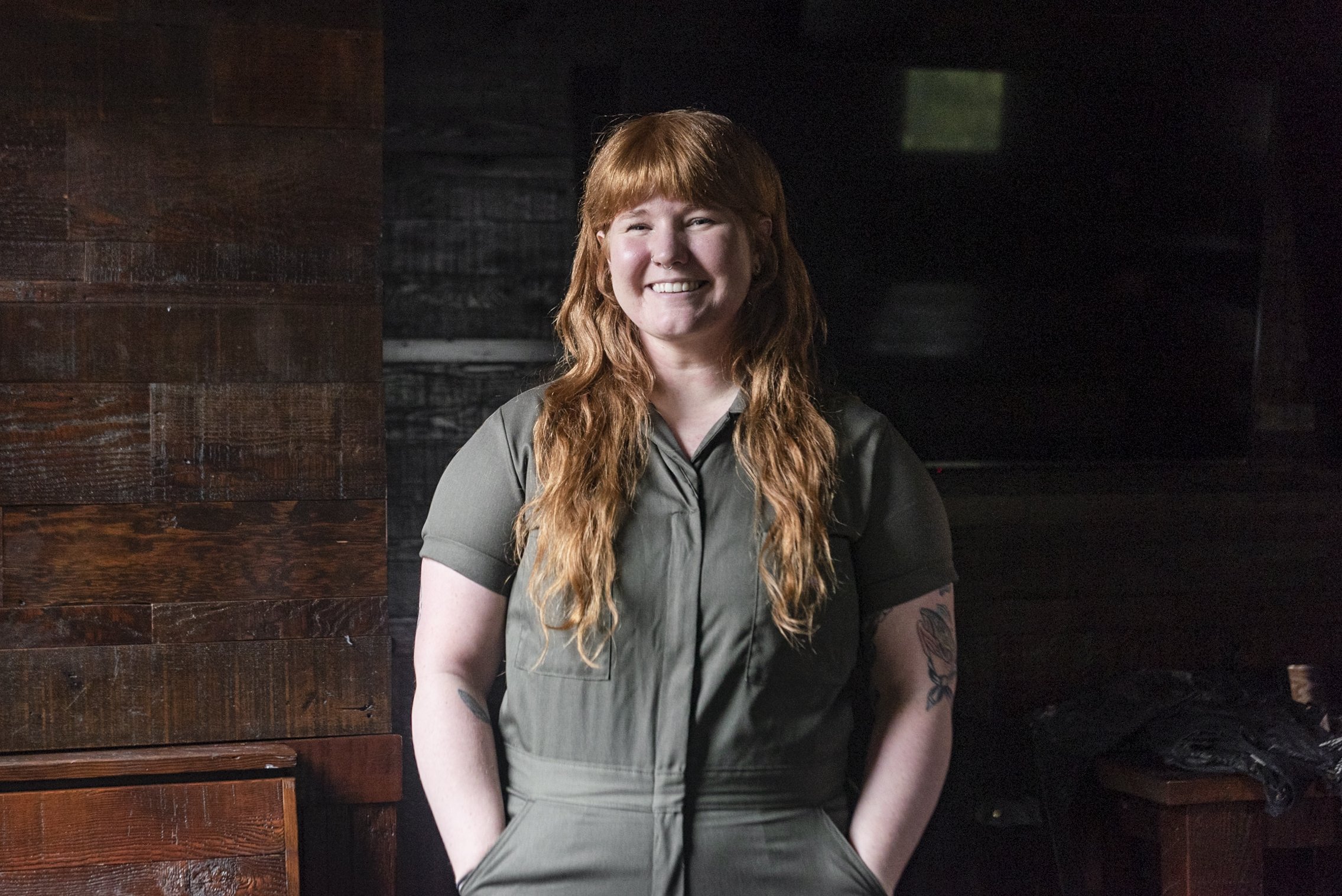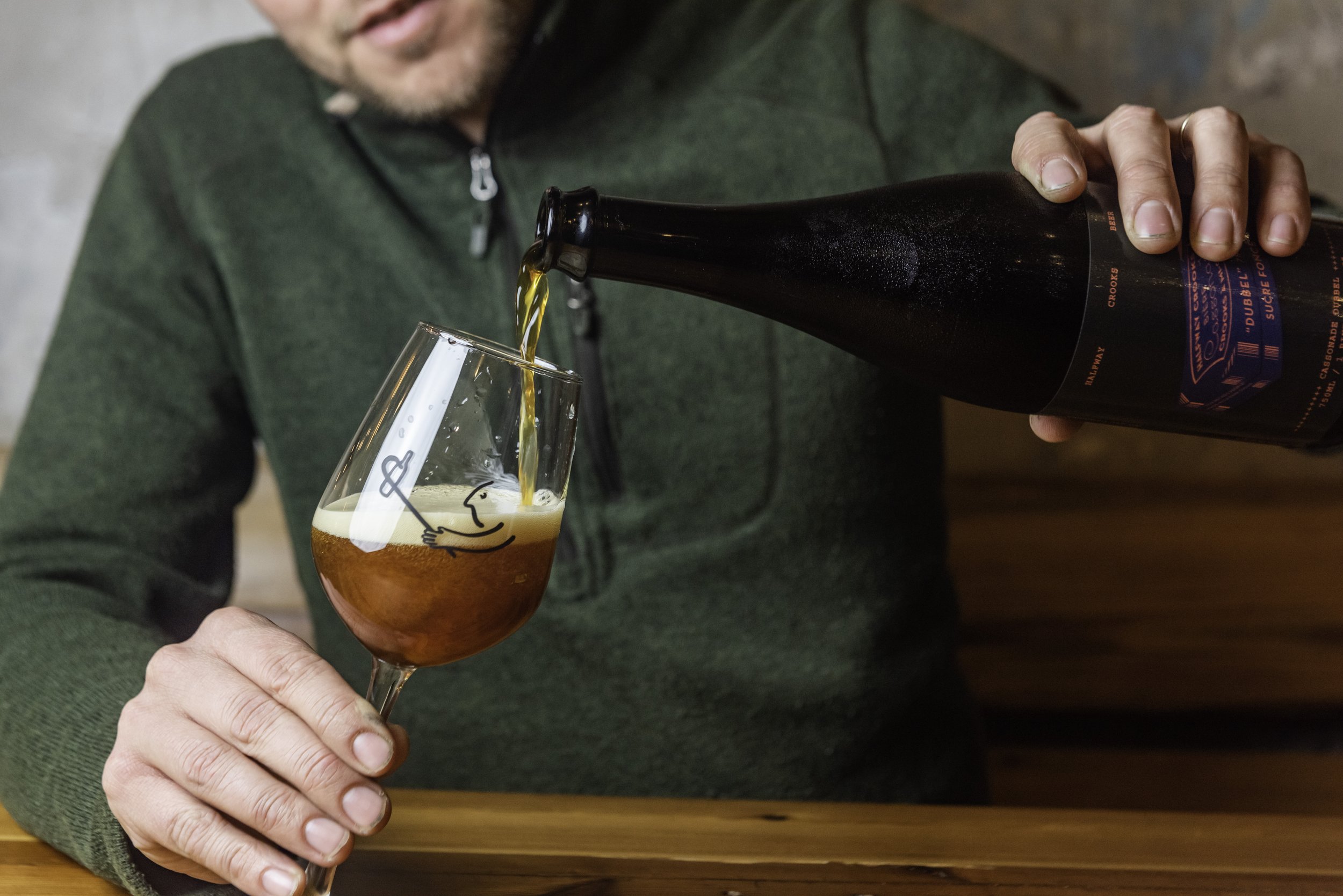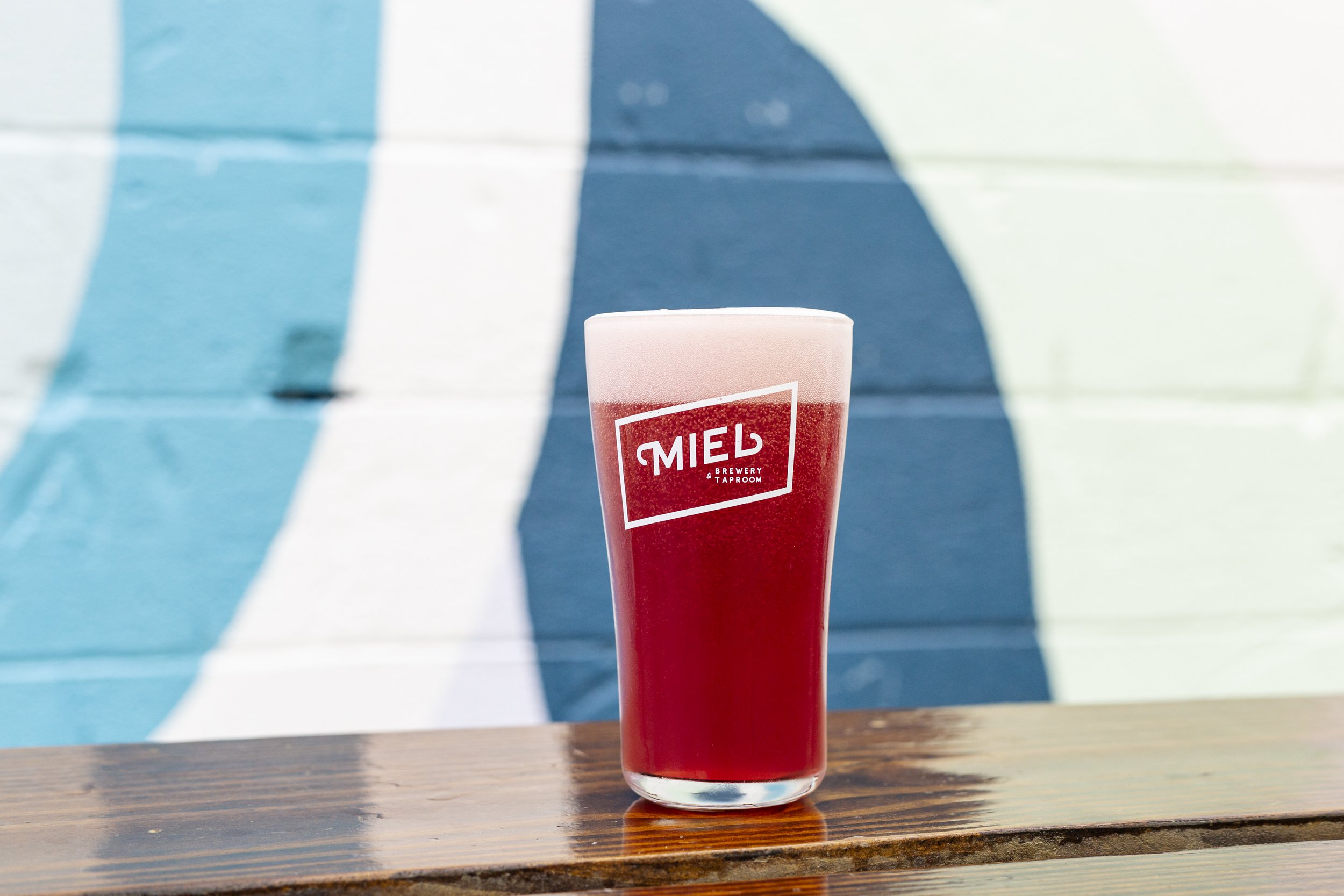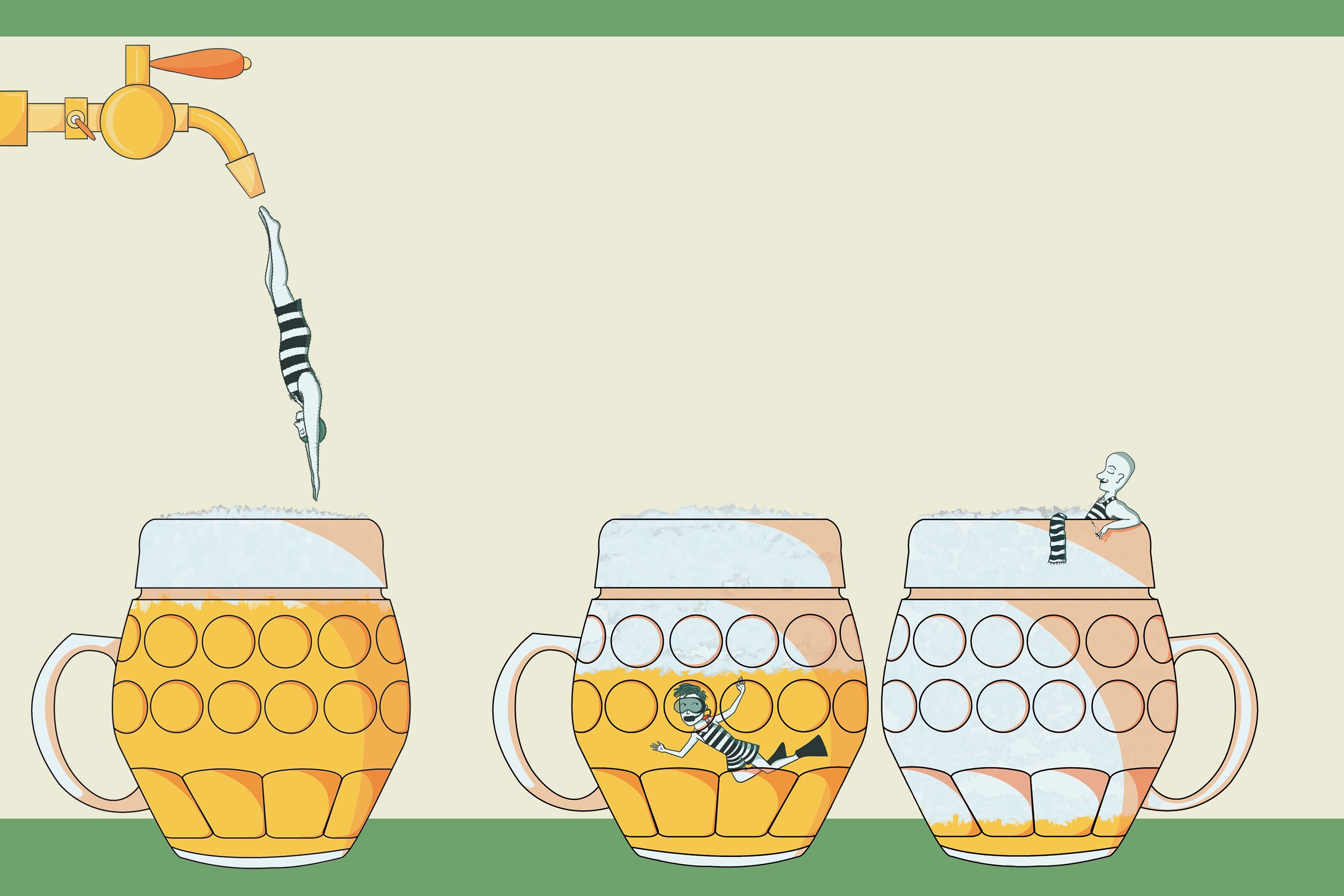Farm to Tap
Baltimore-based brewer Josey Schwartz of Suspended Brewing Co.’s take on the hyper-local approach to brewing at Harding House Brewing Co. in Nashville.
PHOTOS: Mike Finocchiaro
If you visit Harding House Brewing Co., it will appear markedly similar to many other craft breweries—there’s an outside patio full of picnic tables, string lights that zig-zag overhead, and a long row of shiny taps below a giant menu board. But it’s what you can’t know by looking around the premises that makes the brewery special: Harding House strives to make its beer using only what is locally grown and in season.
Commercial brewing is exceptionally difficult. Brewing requires lots of special equipment, supplies, and systems. A good brewer needs technical knowledge of raw materials, microbiology, chemistry, and physics in addition to esoteric ingredients. It makes good sense to order everything from cleaning supplies to yeast nutrients from a central source. So why would a brewer and business owner add more constraints to an already complicated endeavor?
“I want to discover what Tennessee tastes like,” replied Nate Underwood, Harding House co-founder and brewmaster. A world class yeast laboratory nearby, Bootleg Biology, provides locally captured cultures. The soul of Harding House beer is locally grown Violetta and Calypso barleys, wheat, spelt, and oats. Underwood also likes to incorporate adjunct ingredients like Jimmy Red corn, an old bootlegger’s variety. Since local hops are challenging to find, he created the “farm-to-tap” program with the Tennessee Department of Agriculture, which encourages local farmers to grow beer-making crops.
“The first beer in the farm-to-tap program is Place of Origin, a wild ale made with Tennessee water, grain, hops, and native yeast all sourced within 40 miles of the brewhouse,” says Underwood. Harding House also makes a mixed-culture farmhouse ale called Proleptic Green Tomato. “[It’s made] with100 percent local malt, local green tomatoes from our friends at S.E. Daughtery, and dry-hopped with Hallertau Blanc, yielding notes of white wine and green grape.”
brewer nate underwood of harding house brewing co.
“Here at Harding House we like to say the fifth ingredient is people,” says Underwood.
For him, running a brewery is a way to connect community with local agriculture. He believes strongly, “The health of the soil is tied to the health of the community,” and asserts, “To drink is an agricultural act.” Underwood purposely works with farmers using environmentally sound agricultural practices, proving that ecological stewardship doesn’t hinder creativity or prosperity.
A product isn’t just an end result. Where it comes from matters greatly. Underwood’s dedication to ideals larger than himself and his business is something our society desperately needs. When we consciously evaluate the impact of what we’re doing and buying, we can begin to positively shape our world. There are businesses everywhere making everything we could possibly want with dignity. We just have to look for them. After all, no one ever said you can’t have your beer and drink it too.

